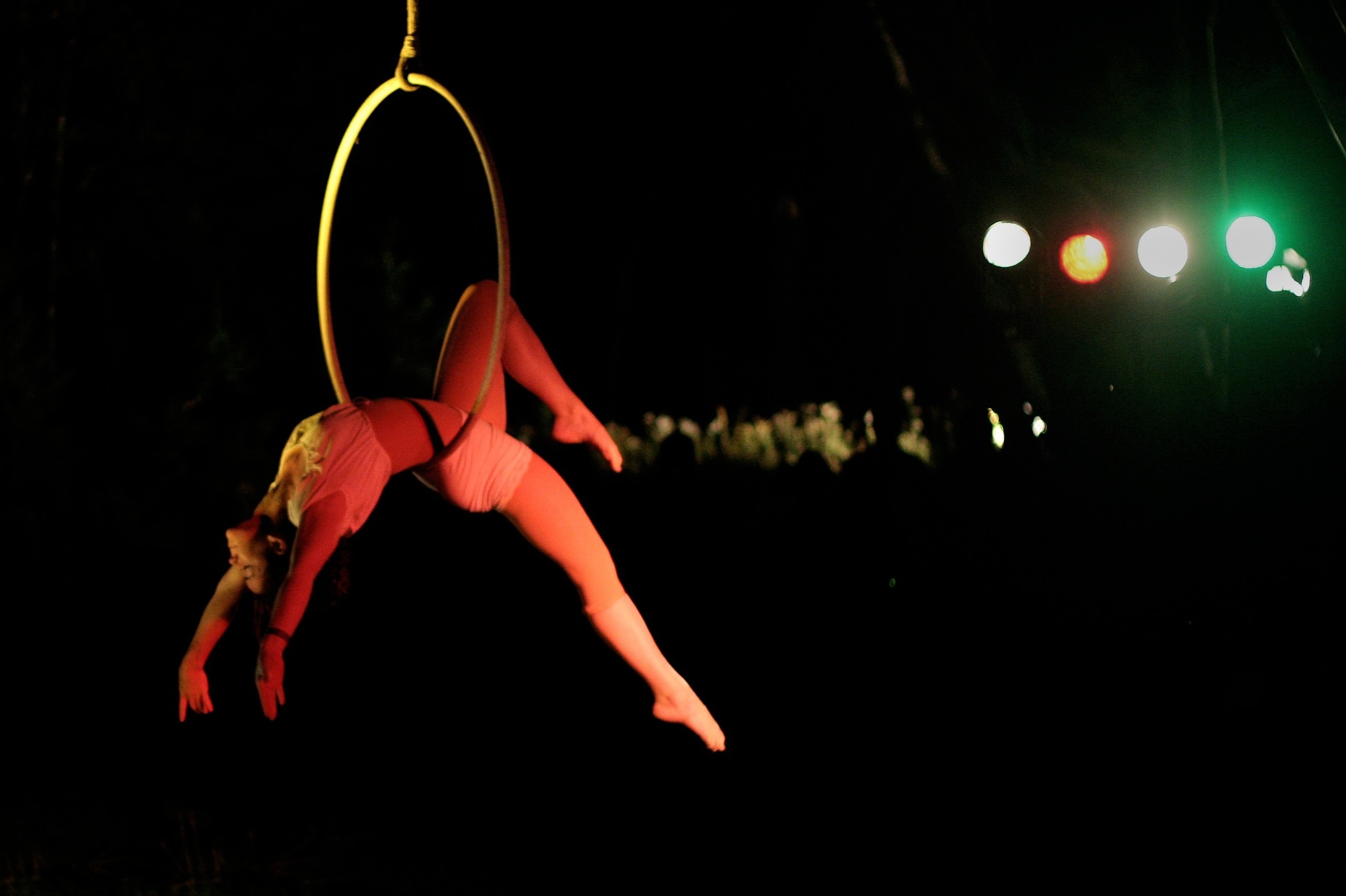How did you get started in acrobatics?
I started gymnastics at age 4. I loved gymnastics, and aerial acrobatics was something that I wanted to do from the first time I saw it performed. In university, a gymnastics friend introduced me to some friends of hers that had a aerial dance company and I began to train with them.
